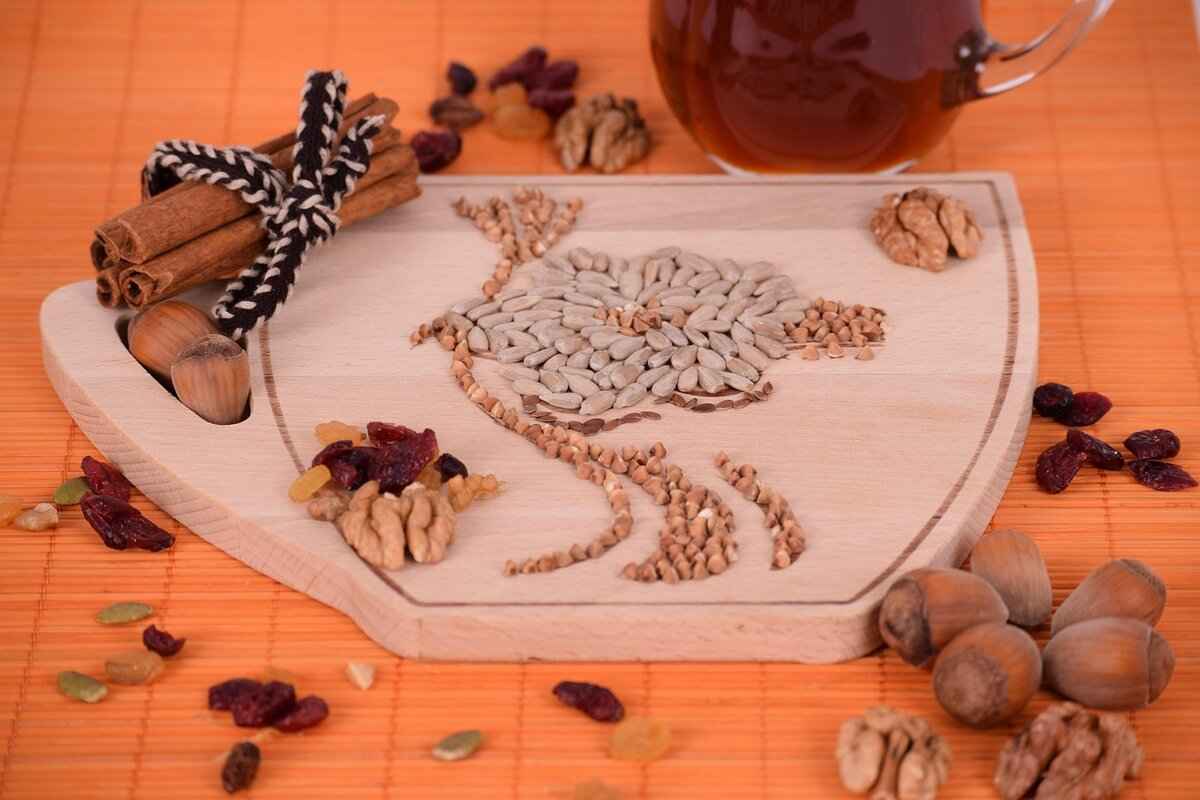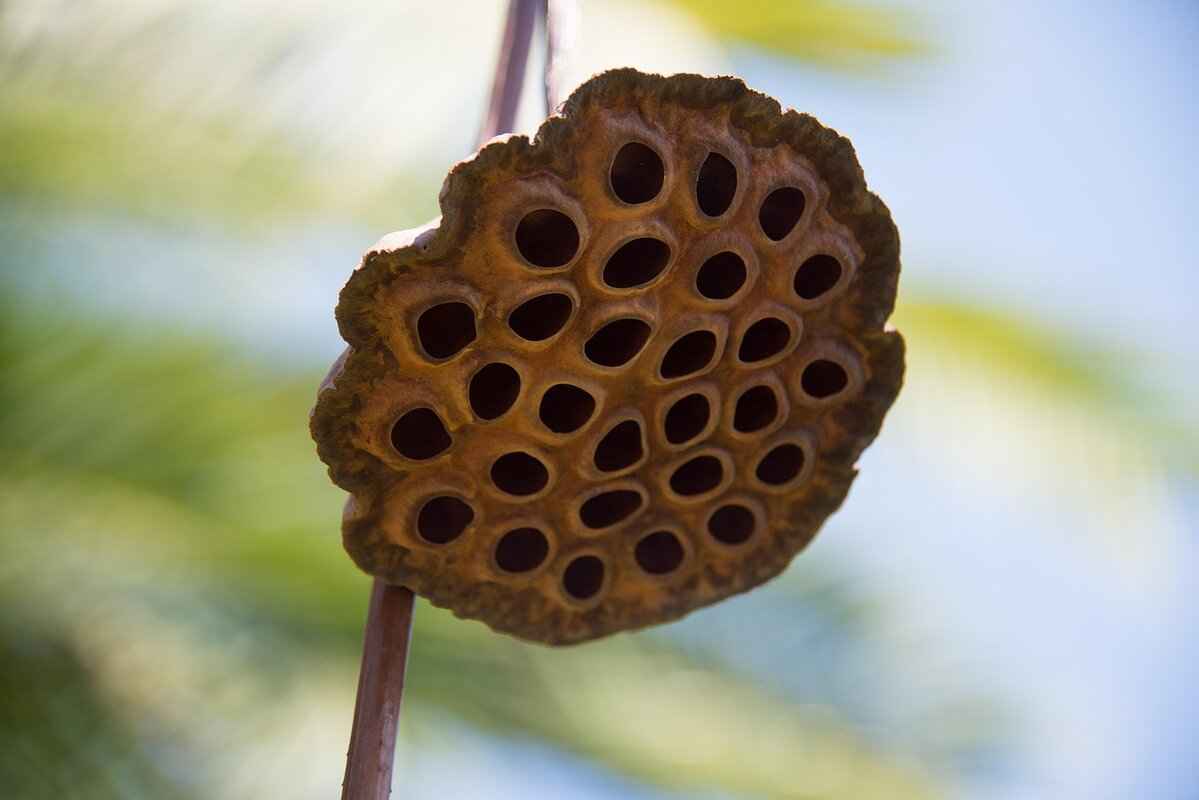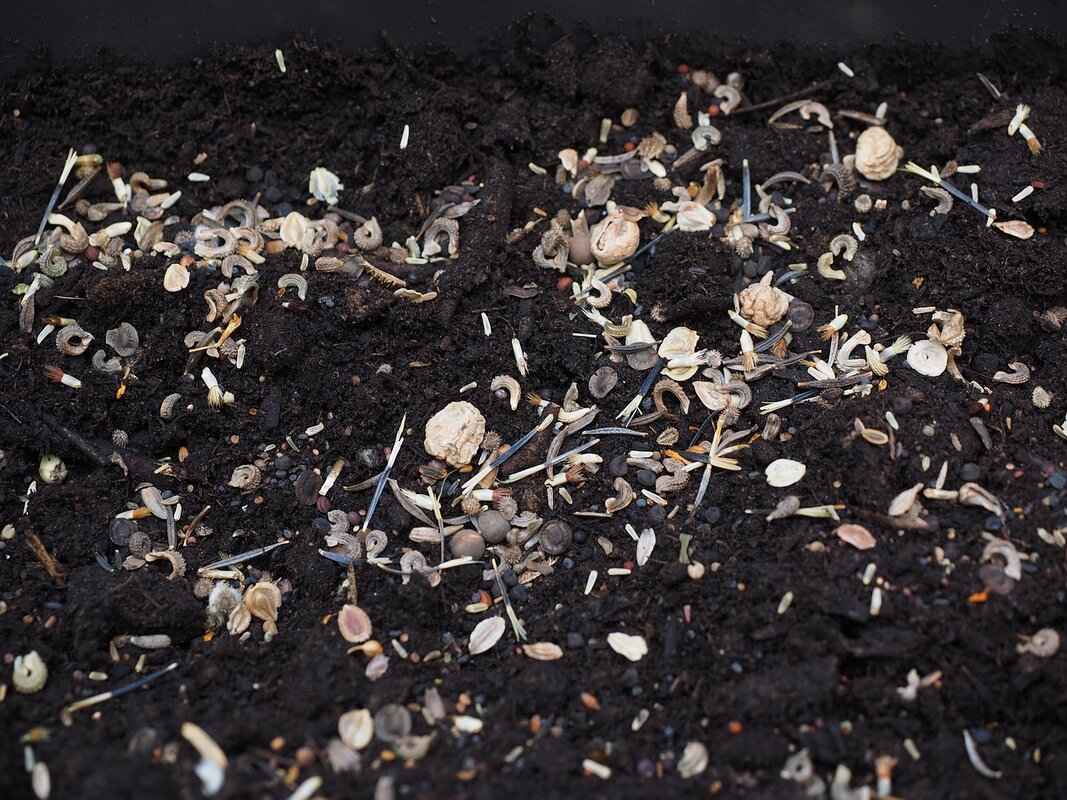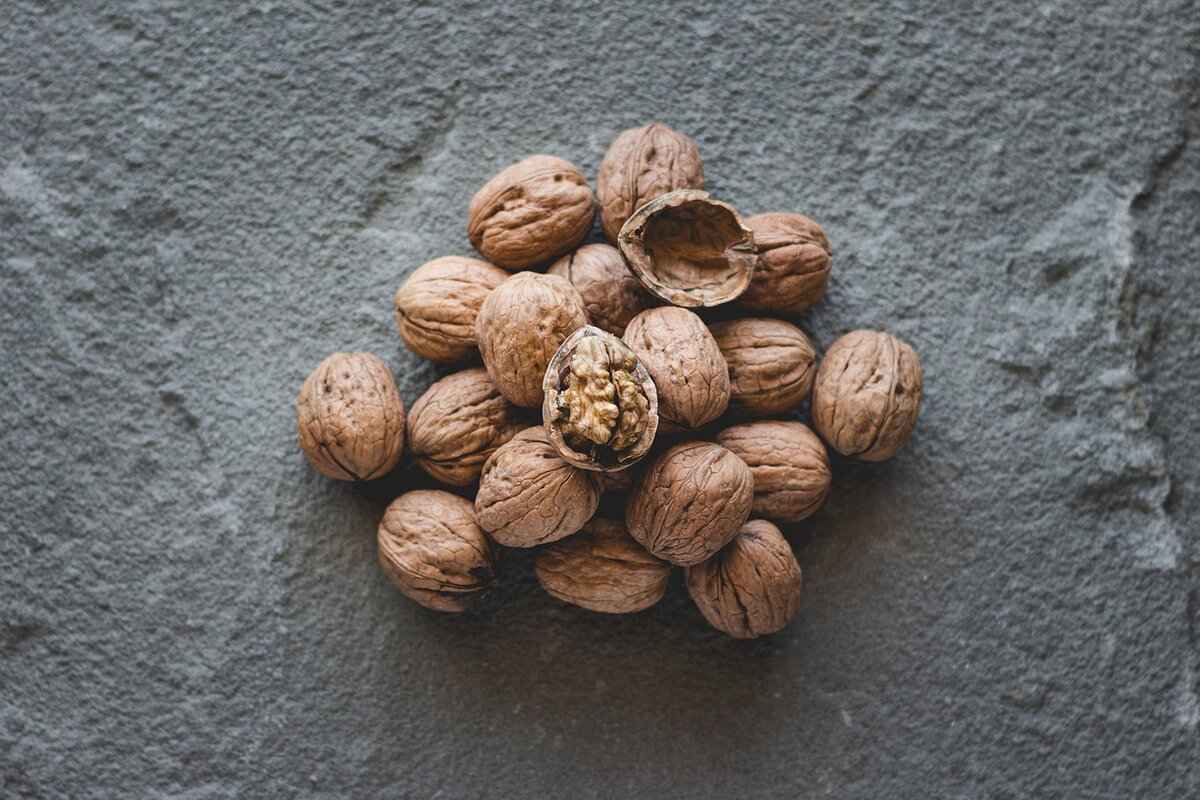This article delves into the numerous health benefits of chia seeds, highlighting their impressive nutritional profile, potential health impacts, and practical methods to incorporate them into your daily meals.
What Are Chia Seeds?
Chia seeds are small, black or white seeds from the Salvia hispanica plant, which is native to Mexico and Guatemala. These tiny seeds have gained immense popularity due to their rich content of omega-3 fatty acids, fiber, and various essential nutrients.
Why Are Chia Seeds Considered a Superfood?
Chia seeds are often classified as a superfood because they are packed with vital nutrients. They contain:
- High Fiber Content: Aids digestion and promotes satiety.
- Protein: Supports muscle repair and growth.
- Essential Minerals: Such as calcium, magnesium, and phosphorus.
How Do Chia Seeds Support Heart Health?
Chia seeds are beneficial for heart health due to their ability to:
- Lower Cholesterol Levels: Regular consumption can help reduce bad cholesterol (LDL) levels.
- Regulate Blood Pressure: The omega-3 fatty acids contribute to maintaining healthy blood pressure levels.
Can Chia Seeds Aid in Weight Loss?
Incorporating chia seeds into your diet may assist in weight management by:
- Increasing Satiety: Chia seeds can absorb water and expand in your stomach, helping you feel full longer.
- Providing Nutrient Density: They are low in calories but high in essential nutrients, making them ideal for weight loss.
How to Incorporate Chia Seeds into Your Diet?
There are various ways to add chia seeds to your meals:
- Chia Seed Puddings: Mix chia seeds with milk or a milk alternative and let them sit overnight for a delicious pudding.
- Smoothies: Blend chia seeds into your favorite smoothies for added nutrition.
- Baked Goods: Add them to muffins or bread for a nutritional boost.
Are There Any Side Effects of Chia Seeds?
While chia seeds are generally safe, some individuals might experience:
- Digestive Issues: Consuming them in excess or without sufficient hydration may lead to bloating or gas.
- Allergic Reactions: Though rare, some people may be allergic to chia seeds.
What Are the Best Ways to Store Chia Seeds?
To maintain their freshness, store chia seeds in:
- Airtight Containers: Keep them in a cool, dry place away from sunlight.
- Long Shelf Life: When stored properly, chia seeds can last for up to two years.
In summary, chia seeds are a versatile and nutrient-rich addition to your diet. Their numerous health benefits, from supporting heart health to aiding in weight loss, make them a valuable superfood. By incorporating chia seeds into your meals, you can enhance your nutrition and overall well-being.

What Are Chia Seeds?
Chia seeds are tiny, yet incredibly powerful seeds that come from the Salvia hispanica plant, which is native to Central America. These seeds have gained immense popularity in recent years due to their impressive nutritional profile and numerous health benefits. Rich in essential nutrients, they serve as a versatile ingredient that can enhance various dishes.
Chia seeds are often labeled as a superfood because they are packed with a variety of nutrients. For instance, they are an excellent source of:
- Omega-3 fatty acids: These are essential fats that are crucial for heart health and brain function.
- Dietary fiber: Aiding in digestion and promoting a feeling of fullness, fiber is vital for maintaining a healthy weight.
- Protein: Chia seeds contain a significant amount of protein, making them an excellent addition to vegetarian and vegan diets.
- Minerals: They are rich in calcium, magnesium, and phosphorus, which are important for bone health.
- Antioxidants: These compounds help combat oxidative stress and protect cells from damage.
The health benefits of chia seeds extend beyond their nutritional content. Here are some key advantages:
- Heart Health: The omega-3 fatty acids in chia seeds can help lower cholesterol levels and reduce the risk of heart disease.
- Weight Management: Due to their high fiber content, chia seeds can help control appetite and reduce overall calorie intake.
- Digestive Health: The fiber in chia seeds promotes regular bowel movements, aiding in digestive health.
- Bone Health: The calcium and phosphorus in chia seeds contribute to strong bones and teeth.
Incorporating chia seeds into your daily meals is simple and can be done in various ways:
- Chia Seed Pudding: Combine chia seeds with almond milk or coconut milk and let them soak overnight. Add fruits and nuts for a delicious breakfast.
- Smoothies: Blend chia seeds into your smoothies for added nutrition without altering the flavor.
- Baking: Add chia seeds to muffins, breads, or energy bars for a nutritional boost.
- Salads: Sprinkle chia seeds over salads for added crunch and nutrients.
While chia seeds are generally safe for most people, some individuals may experience digestive discomfort if consumed in large quantities without adequate water. It is important to:
- Hydrate: Always drink plenty of water when consuming chia seeds to prevent any digestive issues.
- Start Slow: If you are new to chia seeds, begin with a small amount and gradually increase your intake.
- Check for Allergies: Although rare, some individuals may have allergies to chia seeds.
To maintain their freshness and nutritional value, store chia seeds in a cool, dry place. An airtight container is ideal for protecting them from moisture and light. When stored properly, chia seeds can last for up to two years, making them a long-lasting addition to your pantry.
In conclusion, chia seeds are a versatile and nutrient-dense food that can offer numerous health benefits. By incorporating them into your diet, you can enjoy their rich nutritional profile while enhancing your overall health and wellness.

Why Are Chia Seeds Considered a Superfood?
Chia seeds, derived from the Salvia hispanica plant, have gained immense popularity in the health and wellness community. Often hailed as a superfood, these tiny seeds pack a powerful nutritional punch. But what exactly makes chia seeds worthy of this title? This article delves into the reasons why chia seeds are considered a superfood and how they can benefit your overall health.
Chia seeds are labeled as a superfood due to their rich nutrient profile. They are an excellent source of:
- Fiber: Chia seeds are loaded with dietary fiber, which aids in digestion and promotes a healthy gut.
- Protein: These seeds are a complete protein source, containing all nine essential amino acids, making them an ideal choice for vegetarians and vegans.
- Essential Minerals: Chia seeds are rich in vital minerals such as calcium, magnesium, and phosphorus, which are crucial for bone health and metabolic functions.
- Omega-3 Fatty Acids: They are one of the best plant-based sources of omega-3 fatty acids, which are essential for heart health and reducing inflammation.
Incorporating chia seeds into your diet can be as simple as adding them to smoothies, yogurt, or baked goods. Their versatility allows for easy integration into daily meals, making it effortless to reap their benefits.
In addition to their impressive nutrient content, chia seeds offer numerous health benefits:
- Supports Digestive Health: The high fiber content in chia seeds aids in digestion by promoting regular bowel movements and preventing constipation.
- Weight Management: Chia seeds expand in the stomach, creating a gel-like substance that enhances feelings of fullness, which can help reduce overall calorie intake.
- Rich in Antioxidants: These seeds contain antioxidants that combat free radicals, potentially lowering the risk of chronic diseases.
Chia seeds are unique not only for their nutrient density but also for their ability to absorb liquid. When soaked, they can absorb up to 12 times their weight in water, which can help keep you hydrated and feeling full. This property makes them an excellent addition to various recipes, including:
- Chia Seed Pudding: A delicious and nutritious dessert that requires minimal preparation.
- Smoothies: Blend them into your favorite smoothies for an added nutritional boost.
- Baked Goods: Incorporate them into muffins or bread for enhanced texture and nutrition.
While chia seeds are generally safe for most people, moderation is key. Some individuals may experience digestive discomfort, such as bloating or gas, especially if they are not used to a high-fiber diet. It is important to drink plenty of water when consuming chia seeds to aid in digestion and prevent any potential issues.
When selecting chia seeds, look for organic and non-GMO options if possible. Store them in a cool, dry place in an airtight container to maintain freshness. Proper storage can extend their shelf life up to two years, making them a convenient pantry staple.
In summary, chia seeds are a powerhouse of nutrients that can significantly enhance your diet. Their numerous health benefits, coupled with their versatility in cooking and baking, make them an excellent choice for anyone looking to improve their overall health and wellness.
High in Nutrients
Chia seeds are often celebrated for their impressive nutritional profile, making them a popular choice among health enthusiasts. These tiny seeds, derived from the Salvia hispanica plant, are packed with essential nutrients that can significantly contribute to your overall health and wellness. Including chia seeds in your daily meals can provide a myriad of health benefits, thanks to their rich content of vitamins, minerals, and antioxidants.
Chia seeds are a powerhouse of essential nutrients. Just a single ounce (about 28 grams) contains:
- Fiber: Approximately 11 grams, which supports digestive health.
- Protein: About 4 grams, making them a great plant-based protein source.
- Calcium: Roughly 18% of the daily recommended intake.
- Magnesium: Approximately 30% of the daily recommended intake.
- Antioxidants: Vital for combating oxidative stress in the body.
The health benefits of chia seeds extend beyond their nutrient density. They are known for:
- Improving Digestive Health: The high fiber content aids in digestion and promotes regular bowel movements.
- Supporting Heart Health: Rich in omega-3 fatty acids, chia seeds help reduce inflammation and lower cholesterol levels.
- Enhancing Bone Health: The calcium and magnesium found in chia seeds are crucial for maintaining strong bones.
Incorporating chia seeds into your meals is simple and versatile. Here are some practical ways to enjoy their benefits:
- Chia Seed Puddings: Mix chia seeds with your choice of milk and sweetener, let it sit overnight, and enjoy a nutritious breakfast.
- Smoothies: Add a tablespoon of chia seeds to your smoothies for an added nutrient boost.
- Baking: Incorporate chia seeds into muffins, breads, or energy bars for extra fiber and nutrition.
While chia seeds are generally safe for most people, it’s essential to consume them in moderation. Here are some considerations:
- Hydration: Chia seeds absorb a significant amount of water. Ensure you drink enough fluids to avoid digestive discomfort.
- Allergies: Though rare, some individuals may experience allergic reactions to chia seeds.
In summary, chia seeds are not just a trendy health food; they are a nutrient-dense superfood that can enhance your diet in numerous ways. From improving digestion to supporting heart health, these tiny seeds pack a powerful punch. By incorporating chia seeds into your meals, you can enjoy a variety of health benefits while adding texture and flavor to your dishes.
Rich in Omega-3 Fatty Acids
Chia seeds, derived from the Salvia hispanica plant, have gained popularity in recent years due to their impressive health benefits. Among these, their high content of omega-3 fatty acids stands out, making them a vital addition to a healthy diet. In this section, we will delve deeper into the significance of omega-3 fatty acids found in chia seeds and their impact on overall health.
Omega-3 fatty acids are essential fats that the body cannot produce on its own, meaning they must be obtained through diet. These fats play a crucial role in various bodily functions, including:
- Heart Health: Omega-3s help lower blood pressure, reduce triglycerides, and decrease the risk of heart disease.
- Inflammation Reduction: They possess anti-inflammatory properties that can help alleviate chronic inflammation, a contributor to many diseases.
- Cognitive Function: Omega-3 fatty acids are vital for brain health and may help protect against cognitive decline as we age.
While fatty fish like salmon and mackerel are well-known sources of omega-3s, chia seeds offer a plant-based alternative that is particularly beneficial for vegetarians and vegans. In fact, chia seeds are one of the richest plant sources of alpha-linolenic acid (ALA), a type of omega-3 fatty acid. Just two tablespoons of chia seeds provide approximately 5 grams of ALA, significantly contributing to the recommended daily intake.
Adding chia seeds to your diet is simple and versatile. Here are some practical ways to include them:
- Chia Seed Pudding: Mix chia seeds with your choice of milk and let them sit overnight. Add fruits and nuts for a nutritious breakfast.
- Smoothies: Blend chia seeds into your favorite smoothie for an added boost of omega-3s.
- Baking: Incorporate chia seeds into muffins, breads, and energy bars for a nutritious twist.
Regular consumption of chia seeds can lead to numerous health benefits:
- Heart Disease Prevention: By lowering LDL cholesterol and triglycerides, omega-3s from chia seeds can help maintain healthy blood vessels and reduce the risk of heart disease.
- Improved Mood: Omega-3 fatty acids are linked to better mental health, potentially reducing symptoms of depression and anxiety.
- Enhanced Skin Health: The anti-inflammatory properties of omega-3s can improve skin hydration and overall appearance.
While chia seeds are generally safe for most people, it is essential to consume them in moderation. Overconsumption may lead to digestive issues, such as bloating or gas, especially for those not used to high fiber intake. Additionally, individuals on blood-thinning medications should consult with a healthcare professional before significantly increasing their omega-3 intake.
In summary, chia seeds are a powerhouse of omega-3 fatty acids, providing numerous health benefits while being easy to incorporate into various meals. Whether you’re looking to support heart health, reduce inflammation, or enhance cognitive function, chia seeds are an excellent choice for anyone aiming to improve their overall wellness.
Loaded with Antioxidants
– Chia seeds are not just a trendy superfood; they are a powerhouse of nutrients that can significantly enhance your health. One of the standout features of chia seeds is their high antioxidant content. Antioxidants are vital in protecting our bodies from oxidative stress caused by free radicals, unstable molecules that can damage cells and lead to chronic diseases.
When we consume foods rich in antioxidants, like chia seeds, we provide our bodies with the tools necessary to combat these harmful free radicals. This protective effect can potentially lower the risk of various chronic conditions, such as heart disease, diabetes, and cancer. The unique blend of antioxidants found in chia seeds includes flavonoids, phenolic acids, and other phytochemicals that contribute to their health benefits.
In a world where environmental factors and lifestyle choices can increase oxidative stress, incorporating chia seeds into your diet is a proactive step towards better health. They are particularly beneficial because they are easy to add to a variety of meals. Whether sprinkled on salads, blended into smoothies, or mixed into yogurt, chia seeds are a versatile ingredient that enhances both flavor and nutrition.
Moreover, the antioxidants in chia seeds also play a role in skin health. By reducing inflammation and protecting against UV damage, they can help maintain a youthful appearance and promote overall skin vitality. This is particularly important in today’s world, where exposure to pollutants and harmful UV rays is common.
Research has shown that diets rich in antioxidants can lead to improved health outcomes. For example, a study published in the Journal of Nutrition indicated that individuals who consumed higher amounts of antioxidants had a lower incidence of chronic diseases compared to those with a lower intake. This underscores the importance of including antioxidant-rich foods like chia seeds in your daily diet.
To maximize the benefits of chia seeds, consider pairing them with other antioxidant-rich foods. For instance, combining chia seeds with berries, dark chocolate, or green leafy vegetables can create a nutrient-dense meal that packs a powerful antioxidant punch. This not only enhances the flavor of your dishes but also amplifies the health benefits.
In summary, chia seeds are a formidable ally in the fight against oxidative stress due to their high antioxidant content. By incorporating these tiny seeds into your diet, you can support your body’s defenses against free radicals, promote heart health, and improve skin vitality. With their versatility and ease of use, chia seeds are an excellent addition to any health-conscious diet.
Excellent Source of Fiber
Chia seeds, often hailed as a superfood, are known for their impressive nutritional profile, particularly their high fiber content. This tiny seed packs a powerful punch when it comes to promoting digestive health and supporting weight management. In this section, we will explore the numerous benefits of chia seeds as an and how they can positively impact your overall wellness.
Fiber plays a crucial role in maintaining a healthy digestive system. It aids in regular bowel movements, helps control blood sugar levels, and contributes to heart health. The recommended daily intake of fiber is about 25 grams for women and 38 grams for men, but most people fall short. Incorporating high-fiber foods like chia seeds into your diet can help bridge this gap.
With a remarkable 34 grams of fiber per 100 grams, chia seeds are an exceptional source of dietary fiber. The soluble fiber in chia seeds absorbs water, expanding to form a gel-like substance in the stomach. This process not only aids in digestion but also promotes feelings of fullness, which can help prevent overeating.
- Encourages Healthy Bowel Movements: The high fiber content in chia seeds helps to bulk up stool, making it easier to pass.
- Reduces Constipation: By promoting regularity, chia seeds can help alleviate constipation, a common digestive issue.
- Supports Gut Health: Fiber acts as a prebiotic, feeding the beneficial bacteria in your gut, which is essential for overall digestive health.
In addition to their digestive benefits, chia seeds can also support weight management. The gel-like substance formed when chia seeds absorb water not only aids digestion but also enhances satiety. This means you are likely to feel fuller for longer periods, which can help reduce snacking and control calorie intake.
Adding chia seeds to your meals can be both easy and delicious. Here are a few practical ways to include them:
- Chia Seed Pudding: Combine chia seeds with your choice of milk or yogurt, let it sit overnight, and enjoy a nutritious breakfast.
- Smoothies: Blend chia seeds into your favorite smoothies for an added boost of fiber and nutrients.
- Baking: Incorporate chia seeds into baked goods like muffins or bread for a nutritious twist.
While chia seeds are generally safe for most people, it is important to consume them in moderation, especially if you are not used to a high-fiber diet. Start with a small amount and gradually increase your intake to avoid digestive discomfort.
In summary, chia seeds are an that can significantly enhance digestive health and support weight management. By incorporating these tiny seeds into your diet, you can enjoy their numerous health benefits while contributing to your overall wellness.

How Do Chia Seeds Support Heart Health?
Chia seeds, often hailed as a superfood, offer a multitude of health benefits, particularly for heart health. Their remarkable nutritional profile includes high levels of omega-3 fatty acids, fiber, and essential minerals, all of which play a crucial role in maintaining cardiovascular function. This article will delve deeper into how chia seeds support heart health through various mechanisms, making them a valuable addition to your diet.
Chia seeds contribute significantly to heart health through several key mechanisms:
- Lowering Cholesterol Levels: Regular consumption of chia seeds has been linked to reduced levels of LDL cholesterol, often referred to as “bad” cholesterol. This is primarily due to their high fiber content, which helps bind cholesterol in the digestive system, preventing its absorption into the bloodstream. By lowering LDL levels, chia seeds can significantly decrease the risk of heart disease.
- Reducing Blood Pressure: The omega-3 fatty acids found in chia seeds are known for their anti-inflammatory properties, which can help relax blood vessels and improve circulation. This effect can lead to lower blood pressure levels, making chia seeds an excellent food choice for those looking to maintain a healthy heart.
- Providing Essential Nutrients: Chia seeds are packed with essential nutrients, including magnesium, calcium, and potassium, which are vital for heart health. Magnesium, for instance, plays a role in regulating blood pressure, while potassium helps manage fluid balance and nerve function, both of which are crucial for cardiovascular health.
The unique combination of nutrients in chia seeds makes them particularly beneficial for heart health:
- Omega-3 Fatty Acids: Chia seeds are one of the best plant-based sources of omega-3 fatty acids, specifically alpha-linolenic acid (ALA). These fatty acids are essential for heart health as they help reduce inflammation and lower triglyceride levels, which are risk factors for heart disease.
- High Fiber Content: With a fiber content of approximately 11 grams per ounce, chia seeds promote digestive health and help regulate cholesterol levels. Fiber can also aid in weight management, as it enhances feelings of fullness, reducing the likelihood of overeating.
- Antioxidants: Chia seeds are rich in antioxidants that combat oxidative stress and inflammation in the body. By reducing free radical damage, these antioxidants can lower the risk of chronic diseases, including heart disease.
Incorporating chia seeds into your diet can be a proactive step toward preventing heart disease. Their multifaceted benefits contribute to overall heart health:
- Regular Consumption: Studies have shown that individuals who regularly consume chia seeds tend to have better heart health markers, including lower cholesterol and blood pressure levels.
- Versatile Ingredient: Chia seeds can be easily incorporated into various meals, from smoothies to salads, making it simple to reap their health benefits. This versatility encourages consistent consumption, further supporting heart health.
In summary, chia seeds are a powerhouse of nutrients that support heart health by lowering cholesterol, reducing blood pressure, and providing essential nutrients. Their incorporation into a balanced diet can significantly contribute to cardiovascular well-being, making them a valuable addition to your health regimen.
Cholesterol-lowering Properties
Cholesterol is a crucial element in our body, playing a vital role in various physiological functions. However, not all cholesterol is created equal. Low-Density Lipoprotein (LDL), often referred to as “bad cholesterol,” can lead to serious health issues, including heart disease, when present in high levels. This is where the remarkable of chia seeds come into play.
Chia seeds are rich in soluble fiber, which is known to bind to cholesterol in the digestive system. This binding process helps to eliminate cholesterol from the body rather than allowing it to be absorbed into the bloodstream. The high fiber content not only aids in cholesterol management but also promotes a healthier digestive system overall.
Another significant component of chia seeds is their high concentration of omega-3 fatty acids. These essential fats are known for their heart-protective benefits. Studies have shown that omega-3 fatty acids can help reduce triglycerides, lower blood pressure, and improve overall cholesterol levels. By incorporating chia seeds into your diet, you can harness these benefits to improve your cardiovascular health.
Numerous studies have highlighted the beneficial effects of chia seeds on cholesterol levels. For instance, a study published in the American Journal of Clinical Nutrition found that participants who consumed chia seeds regularly experienced a significant reduction in LDL cholesterol levels. This evidence supports the notion that chia seeds can be a powerful ally in the fight against heart disease.
To reap the cholesterol-lowering benefits of chia seeds, consider incorporating them into your daily meals. Here are some practical ways to do so:
- Chia Seed Smoothies: Blend chia seeds into your favorite smoothie for an easy and nutritious addition.
- Chia Pudding: Combine chia seeds with almond milk or yogurt, let them soak overnight, and enjoy a delicious pudding.
- Baked Goods: Add chia seeds to muffins, bread, or pancakes for an extra nutrient boost.
While chia seeds are generally safe for most individuals, it’s important to consume them in moderation. Some people may experience digestive discomfort if they suddenly increase their fiber intake. To avoid this, start with a small amount and gradually increase your intake. Additionally, ensure you drink plenty of water, as chia seeds absorb liquid and can expand in your stomach.
In conclusion, regular consumption of chia seeds can be a simple yet effective strategy to lower LDL cholesterol levels and enhance cardiovascular health. Their rich nutrient profile, including fiber and omega-3 fatty acids, makes them a valuable addition to any diet. By making chia seeds a staple in your meals, you can take proactive steps toward better heart health and overall wellness.
Blood Pressure Regulation
is a crucial aspect of maintaining overall health, and recent studies highlight the role of chia seeds in this regard. The omega-3 fatty acids and fiber found in chia seeds are believed to play a significant role in regulating blood pressure, making these tiny seeds a heart-friendly food choice.
Chia seeds are derived from the Salvia hispanica plant and are known for their impressive nutritional profile. They are packed with essential nutrients, including protein, calcium, magnesium, and antioxidants, making them a valuable addition to any diet. However, it is their unique combination of omega-3 fatty acids and soluble fiber that particularly benefits heart health.
The omega-3 fatty acids in chia seeds, particularly alpha-linolenic acid (ALA), are essential for cardiovascular health. Research suggests that these fatty acids can help reduce inflammation, lower blood pressure, and improve overall heart function. By incorporating chia seeds into your diet, you may experience:
- Improved arterial function: Omega-3s help maintain the elasticity of blood vessels, promoting better blood flow.
- Reduced blood clotting: These fatty acids can decrease the likelihood of blood clots, which is beneficial for heart health.
- Lowered triglyceride levels: Regular consumption of omega-3s can lead to a decrease in triglycerides, further supporting heart health.
In addition to omega-3 fatty acids, chia seeds are an excellent source of dietary fiber. The soluble fiber in chia seeds forms a gel-like substance in the stomach, which can help regulate digestion and promote feelings of fullness. This fiber can also have a positive impact on blood pressure:
- Weight management: By enhancing satiety, fiber helps control appetite, which can lead to weight loss or maintenance. A healthy weight is crucial for regulating blood pressure.
- Lower cholesterol levels: Fiber can help reduce LDL cholesterol levels, which is linked to improved heart health and lower blood pressure.
- Improved gut health: Fiber supports a healthy gut microbiome, which has been associated with better cardiovascular health.
To reap the blood pressure-regulating benefits of chia seeds, consider incorporating them into your daily meals. Here are some practical ways to do so:
- Add to smoothies: Blend chia seeds into your morning smoothie for an easy nutritional boost.
- Make chia pudding: Combine chia seeds with your favorite milk or yogurt and let them sit overnight to create a delicious pudding.
- Sprinkle on salads: Use chia seeds as a topping for salads or grain bowls to add texture and nutrition.
- Bake into goods: Incorporate chia seeds into muffins, breads, or energy bars for added health benefits.
In conclusion, the combination of omega-3 fatty acids and fiber in chia seeds offers a natural way to support blood pressure regulation and overall heart health. By including these nutrient-dense seeds in your diet, you can enjoy a range of health benefits while promoting a balanced lifestyle. Remember to consult with a healthcare professional before making significant changes to your diet, especially if you have existing health conditions.

Can Chia Seeds Aid in Weight Loss?
Chia seeds have gained significant popularity in recent years, particularly among those seeking to manage their weight effectively. These tiny seeds are not only versatile but also packed with essential nutrients. In this section, we will explore how chia seeds can aid in weight loss by enhancing satiety and supporting overall health.
Incorporating chia seeds into your diet can be a powerful strategy for weight management. Their high fiber content plays a crucial role in promoting feelings of fullness, which can lead to a reduction in overall calorie intake. When consumed, chia seeds absorb water and expand in the stomach, forming a gel-like substance that can help you feel satisfied for longer periods.
The gel formation that occurs when chia seeds are mixed with liquid is a key factor in their ability to promote satiety. This gel slows down the digestion process, allowing for a gradual release of energy and a prolonged sense of fullness. As a result, individuals may find themselves less inclined to snack between meals, which can significantly reduce daily calorie consumption.
Despite their ability to fill you up, chia seeds are low in calories, making them an excellent choice for those looking to lose weight without sacrificing nutrition. A typical serving of chia seeds (about 28 grams) contains approximately 138 calories, yet it provides a wealth of nutrients, including protein, fiber, and essential fatty acids. This nutrient density means you can enjoy a satisfying meal or snack without overindulging in calories.
- Chia Seed Puddings: A popular way to enjoy chia seeds, simply mix them with your choice of milk or yogurt and let them sit overnight to create a delicious pudding.
- Smoothies: Add a tablespoon of chia seeds to your smoothies for an extra boost of fiber and nutrients.
- Baked Goods: Incorporate chia seeds into muffins, bread, or energy bars for added texture and nutrition.
While chia seeds are generally safe for most individuals, it’s important to consume them in moderation. Overconsumption can lead to digestive discomfort, including bloating or gas, especially for those who are not used to a high-fiber diet. Additionally, it’s crucial to drink plenty of water when consuming chia seeds to help them expand properly in the digestive system.
In conclusion, chia seeds can be a valuable addition to a weight loss regimen due to their ability to enhance satiety and provide essential nutrients without excessive calories. By incorporating chia seeds into your meals and snacks, you can help manage your appetite and support your overall health. Remember to pair chia seeds with a balanced diet and regular exercise for the best results in your weight loss journey.
Increased Satiety
When it comes to enhancing your diet and achieving weight management goals, chia seeds have garnered significant attention for their remarkable ability to promote feelings of fullness. This characteristic makes them a valuable addition to any weight loss strategy.
Chia seeds are unique in their ability to absorb liquid and expand in the stomach. When they come into contact with water, they can absorb up to 12 times their weight, forming a gel-like substance. This process not only increases the volume in your stomach but also slows down the digestion process, which can lead to prolonged feelings of fullness.
Feeling satiated is crucial when it comes to managing your weight effectively. By incorporating chia seeds into your meals, you may find yourself reaching for snacks less often, thus potentially reducing your overall calorie intake. This can be particularly beneficial for those who struggle with mindless eating or frequent snacking between meals.
- Chia Seed Puddings: Combine chia seeds with your choice of milk or yogurt and let them sit overnight. This creates a delicious pudding that can be enjoyed for breakfast or as a snack.
- Smoothies: Add chia seeds to your favorite smoothie recipes. They enhance the texture and provide an extra boost of nutrients.
- Soups and Stews: Sprinkle chia seeds into soups or stews to thicken the consistency while increasing fiber content.
- Baking: Incorporate chia seeds into baked goods like muffins or bread for added nutrition and satiety.
Research has shown that the high fiber content of chia seeds plays a significant role in promoting satiety. Each serving of chia seeds contains approximately 10 grams of fiber, which is essential for digestive health and can help regulate appetite. Fiber-rich foods are known to slow gastric emptying, which means that food stays in your stomach longer, leading to a more prolonged feeling of fullness.
In addition to increasing satiety, chia seeds are packed with essential nutrients, including omega-3 fatty acids, protein, and various minerals. These nutrients not only support overall health but also contribute to better metabolic function. By choosing nutrient-dense foods like chia seeds, you can maintain energy levels while working towards your weight management goals.
While chia seeds are generally safe for most individuals, it’s essential to consume them with adequate hydration. Because they absorb a significant amount of water, eating them without sufficient fluids can lead to digestive discomfort. Start with small amounts and gradually increase your intake to allow your body to adjust.
Incorporating chia seeds into your diet can be a simple yet effective strategy for enhancing satiety and aiding in weight loss. Their unique properties make them a versatile ingredient that can be easily added to various meals. By understanding the benefits of chia seeds and how they can contribute to a feeling of fullness, you can take meaningful steps toward achieving your health and wellness goals.
Low-Calorie Nutrient Density
Chia seeds have gained immense popularity in recent years, particularly among those seeking to improve their health and wellness. One of the most appealing aspects of chia seeds is their . This characteristic makes them an excellent choice for individuals looking to lose weight while still receiving essential nutrients.
Chia seeds are remarkably low in calories, with approximately 58 calories per ounce (28 grams). This makes them an ideal food option for those monitoring their caloric intake. However, what sets chia seeds apart is their high concentration of nutrients. They are rich in fiber, protein, omega-3 fatty acids, and various vitamins and minerals, providing a wealth of health benefits in a small serving size.
Incorporating chia seeds into your diet can significantly aid in weight management. Their unique properties contribute to a feeling of fullness, which can help reduce overall calorie consumption.
When chia seeds are mixed with liquid, they absorb up to 10-12 times their weight in water, forming a gel-like substance. This gel formation slows down digestion, leading to prolonged feelings of fullness. As a result, individuals may find themselves snacking less frequently and consuming fewer calories throughout the day.
Chia seeds are not only low in calories but also boast a balanced profile of macronutrients. Each serving contains about 2 grams of protein, which is essential for muscle maintenance and repair. Additionally, the seeds are packed with dietary fiber, with around 10 grams per ounce. This fiber aids digestion and helps maintain stable blood sugar levels, further supporting weight loss efforts.
Adding chia seeds to your meals is simple and versatile. Here are some practical ways to include them in your daily routine:
- Chia Seed Puddings: Combine chia seeds with your choice of milk or yogurt, let them sit overnight, and enjoy a delicious and nutritious breakfast.
- Smoothies: Blend chia seeds into your favorite smoothies for an extra boost of nutrients without adding many calories.
- Baked Goods: Incorporate chia seeds into muffins, breads, or energy bars to enhance their nutritional value.
While chia seeds are generally safe for most individuals, it is essential to consume them in moderation. Overconsumption, especially without adequate hydration, may lead to digestive discomfort, including bloating or gas. It is advisable to start with small amounts and gradually increase your intake.
Chia seeds are a fantastic addition to any diet, particularly for those focused on weight loss and overall health. Their allows individuals to enjoy a variety of health benefits without the worry of excessive calorie intake. By incorporating chia seeds into your meals, you can enhance your nutrition while supporting your weight management goals.

How to Incorporate Chia Seeds into Your Diet?
Chia seeds are incredibly versatile and can be easily incorporated into various meals and snacks, enhancing their nutritional value without altering the flavor significantly. Here are some practical and creative ways to add chia seeds to your diet.
One of the most popular ways to enjoy chia seeds is by making chia seed puddings. These puddings are not only nutritious but also customizable to suit your taste preferences. To make a basic chia seed pudding, combine:
- 1/4 cup chia seeds
- 1 cup of your choice of milk (almond, coconut, or dairy)
- 1-2 tablespoons of sweetener (honey, maple syrup, or agave)
- Optional: vanilla extract or cocoa powder for flavor
Let the mixture sit for at least 30 minutes, or preferably overnight, in the refrigerator. The chia seeds will absorb the liquid, creating a creamy, pudding-like consistency.
Adding chia seeds to your smoothies or juices is a fantastic way to boost their nutritional content. Simply blend a tablespoon of chia seeds into your favorite smoothie recipe. This not only adds fiber and omega-3 fatty acids but also creates a thicker texture. Consider trying:
- Banana and spinach smoothie
- Berry and yogurt smoothie
- Mango and coconut juice
Chia seeds can also be incorporated into baked goods. They can replace eggs in recipes, making them a great option for vegan baking. To use chia seeds as an egg substitute, mix:
1 tablespoon chia seeds + 2.5 tablespoons water (let sit for 5 minutes)
This mixture can then be added to recipes for muffins, pancakes, or breads. Additionally, sprinkle chia seeds on top of your favorite bread or muffin batter for added crunch and nutrition.
Enhance the nutritional profile of your salads by adding a tablespoon of chia seeds. They can also be included in homemade dressings. A simple chia seed dressing can be made by mixing:
- 1/4 cup olive oil
- 2 tablespoons apple cider vinegar
- 1 tablespoon chia seeds
- Salt and pepper to taste
Shake well and drizzle over your favorite salad for a nutritious boost.
Homemade energy bars are a great way to incorporate chia seeds into your diet. Combine oats, nut butter, honey, and chia seeds to create a mixture that can be pressed into a pan and cut into bars. This makes for a healthy snack that is easy to take on the go.
Stirring chia seeds into yogurt or oatmeal is another simple way to enjoy their benefits. Add a tablespoon of chia seeds to your morning oats or yogurt for an extra boost of protein and fiber. This not only enhances the nutritional value but also adds a delightful texture.
Incorporating chia seeds into your diet is a simple yet effective way to enhance your meals with added nutrition. Their versatility allows for endless possibilities, making them an excellent choice for anyone looking to improve their health.
Chia Seed Puddings
Chia seed puddings are not only a delightful treat but also a nutrient-packed option for those seeking a healthy dessert or snack. With their unique ability to absorb liquid, chia seeds create a creamy, pudding-like texture that is both satisfying and versatile. This simple dish requires minimal preparation and can be customized with various flavors and toppings, making it a favorite among health enthusiasts.
Chia seed puddings are easy to prepare and only require a few ingredients, typically chia seeds, a liquid base (such as almond milk or coconut milk), and a sweetener. The magic happens when chia seeds are mixed with liquid; they swell and form a gel-like consistency, which not only enhances the texture but also boosts the nutritional profile of the dish.
- High in Fiber: Chia seeds are an excellent source of dietary fiber, which promotes digestive health and helps maintain a feeling of fullness.
- Rich in Omega-3 Fatty Acids: These seeds are one of the best plant-based sources of omega-3s, which are known to support heart health and reduce inflammation.
- Loaded with Antioxidants: Chia seeds contain antioxidants that help protect the body from oxidative stress and may lower the risk of chronic diseases.
Creating a chia seed pudding is remarkably simple. Here’s a basic recipe:
Ingredients:- 1/4 cup chia seeds- 1 cup almond milk (or any milk of your choice)- 1-2 tablespoons honey or maple syrup- 1 teaspoon vanilla extract (optional)Instructions:1. In a bowl, combine the chia seeds, almond milk, sweetener, and vanilla extract.2. Stir well to prevent clumping.3. Cover the bowl and refrigerate for at least 2 hours or overnight.4. Once the pudding has thickened, stir again and serve with your favorite toppings, such as fresh fruits, nuts, or granola.
The beauty of chia seed puddings lies in their versatility. You can easily customize the flavor and texture by:
- Adding cocoa powder or chocolate chips for a chocolatey version.
- Mixing in fruits like berries, bananas, or mango for natural sweetness and added nutrients.
- Incorporating spices such as cinnamon or nutmeg for a warm flavor profile.
Chia seed puddings are generally safe for most individuals. However, those with digestive sensitivities should start with smaller portions, as the high fiber content can cause discomfort if consumed in excess. Always ensure you drink plenty of water when increasing fiber intake to avoid digestive issues.
Chia seed puddings can be enjoyed at any time of the day. They make for a fantastic breakfast option, a mid-afternoon snack, or a healthy dessert after dinner. You can prepare them in advance and store them in the refrigerator, making them a convenient choice for busy lifestyles.
In summary, chia seed puddings are a delicious and nutritious way to incorporate the health benefits of chia seeds into your diet. With their ease of preparation and endless customization options, they are sure to become a staple in your healthy eating routine.
Adding to Smoothies and Juices
Incorporating chia seeds into your diet can be a delightful and nutritious experience, especially when added to smoothies and juices. These tiny seeds are not only packed with essential nutrients but also enhance the overall flavor and texture of your beverages. Let’s explore how you can maximize the benefits of chia seeds in your favorite drinks.
Chia seeds are a powerhouse of nutrition, offering a variety of health benefits. When blended into smoothies or juices, they provide a nutritional boost that is hard to ignore. Here are some compelling reasons to include them:
- Rich in Omega-3 Fatty Acids: Chia seeds are one of the best plant-based sources of omega-3 fatty acids, which are essential for heart health and brain function.
- High in Fiber: The soluble fiber in chia seeds aids digestion and promotes a feeling of fullness, which can be beneficial for weight management.
- Loaded with Antioxidants: These seeds are rich in antioxidants that help combat oxidative stress in the body.
Adding chia seeds to your smoothies is an effortless way to enhance their nutritional profile. Here are some practical tips:
- Start with a Base: Begin with your favorite fruits and vegetables as the base of your smoothie. Bananas, spinach, and berries work wonderfully.
- Mix in Chia Seeds: Add 1-2 tablespoons of chia seeds to your blender. You can use them whole or ground, depending on your texture preference.
- Liquid Matters: Use a liquid base such as almond milk, coconut water, or yogurt to help blend the ingredients smoothly.
- Let Them Soak: For a creamier texture, consider letting the chia seeds soak in your liquid for about 10 minutes before blending. This allows them to expand and create a gel-like consistency.
Juices can also benefit from the addition of chia seeds. Here’s how to do it:
- Choose Fresh Ingredients: Use fresh fruits and vegetables to create your juice. Citrus fruits, apples, and carrots are great options.
- Add Chia Seeds: Mix in 1 tablespoon of chia seeds after juicing. This will not only add nutrition but also a unique texture.
- Shake Well: Since chia seeds can settle at the bottom, give your juice a good shake before drinking to ensure an even distribution.
Experimenting with flavor combinations can make your smoothies and juices even more enjoyable. Here are some delicious pairings:
- Berry Blast: Combine strawberries, blueberries, and a splash of orange juice with chia seeds for a refreshing drink.
- Tropical Twist: Blend mango, pineapple, and coconut milk with chia seeds for a taste of the tropics.
- Green Goodness: Mix spinach, avocado, banana, and almond milk with chia seeds for a nutrient-packed green smoothie.
Incorporating chia seeds into your smoothies and juices not only enhances their nutritional value but also adds a delightful texture. With their numerous health benefits, chia seeds are a simple yet powerful way to boost your overall wellness. Start experimenting today and discover your favorite combinations!

Are There Any Side Effects of Chia Seeds?
Chia seeds have gained immense popularity in recent years as a nutritional powerhouse, but like any food, they may not be suitable for everyone. Understanding the potential side effects of chia seeds is crucial for those looking to incorporate them into their diet. In this section, we will explore the various side effects associated with chia seeds, particularly focusing on digestive issues and allergic reactions.
While chia seeds are generally considered safe for most individuals, they can cause digestive discomfort in some cases. This discomfort is often linked to the high fiber content of chia seeds. When consumed in excess or without adequate hydration, these tiny seeds can lead to various digestive issues.
For many people, the introduction of chia seeds into their diet can be beneficial due to their high fiber content. However, for those who are not accustomed to a high-fiber diet, chia seeds may cause bloating, gas, or even constipation. This is particularly true if the seeds are not consumed with sufficient water, as they absorb liquid and expand in the stomach. It is essential to gradually increase fiber intake and drink plenty of fluids to minimize these potential issues.
To avoid digestive discomfort, it is advisable to start with a small amount of chia seeds—typically 1 to 2 tablespoons per day—and gradually increase your intake as your body adjusts. This approach allows your digestive system to adapt to the increased fiber without overwhelming it.
Although rare, some individuals may experience allergic reactions to chia seeds. Symptoms can include itching, rash, or gastrointestinal distress. If you have a history of allergies to other seeds or nuts, it is wise to consult with a healthcare professional before including chia seeds in your diet.
Individuals with certain medical conditions, such as irritable bowel syndrome (IBS) or those on specific medications, should exercise caution when consuming chia seeds. The high fiber content can exacerbate symptoms for those with IBS, and chia seeds may interact with blood-thinning medications due to their omega-3 fatty acid content. Always consult with a healthcare provider if you’re unsure about adding chia seeds to your diet.
- Hydration: Ensure adequate water intake when consuming chia seeds to aid digestion.
- Gradual Introduction: Start with small amounts and increase gradually to allow your digestive system to adapt.
- Mixing: Incorporate chia seeds into smoothies or yogurt to help with digestibility.
In conclusion, while chia seeds offer numerous health benefits, it is essential to be aware of their potential side effects. By understanding how to consume them safely and recognizing any adverse reactions, you can enjoy the many advantages of these nutrient-dense seeds without discomfort.
Potential Digestive Issues
When it comes to incorporating chia seeds into your diet, many people are eager to reap their numerous health benefits. However, it is essential to be aware of potential digestive issues that some individuals may encounter, particularly if they are not accustomed to a diet high in fiber.
Chia seeds are renowned for their high fiber content, which is one of the reasons they are considered a superfood. A single ounce (about 28 grams) of chia seeds contains approximately 11 grams of fiber, which is about 44% of the daily recommended intake for adults. While fiber is crucial for maintaining a healthy digestive system, a sudden increase in fiber consumption can lead to discomfort.
Some individuals may experience bloating or gas after consuming chia seeds, especially if they are not used to high-fiber foods. This discomfort can occur for several reasons:
- Rapid Increase in Fiber Intake: If you suddenly add chia seeds to your diet without gradually increasing your fiber intake, your digestive system may struggle to adjust.
- Inadequate Hydration: Chia seeds absorb water and expand in the stomach. If you consume them without sufficient liquid, they can absorb water from your digestive tract, leading to discomfort.
- Individual Digestive Sensitivity: Some people naturally have more sensitive digestive systems, which may react negatively to the high fiber content in chia seeds.
To enjoy the benefits of chia seeds while minimizing the risk of digestive issues, consider the following tips:
- Start Slow: If you are new to chia seeds, start with a small amount (e.g., half a tablespoon) and gradually increase your intake over time.
- Stay Hydrated: Always consume chia seeds with plenty of water. This helps them expand properly and reduces the risk of bloating.
- Soak Before Consumption: Soaking chia seeds in water or other liquids before consumption can help them expand outside the digestive system, making them easier to digest.
- Incorporate Gradually: Mix chia seeds into your meals over time, rather than consuming them in large quantities all at once. This allows your digestive system to adapt.
If you find that chia seeds consistently cause digestive discomfort, you might consider other sources of fiber that are gentler on the stomach. Options such as oats, flaxseeds, or vegetables may provide similar health benefits without the same level of gastrointestinal distress.
In conclusion, while chia seeds are a nutritious addition to many diets, it is crucial to be mindful of how your body responds to them. By taking a gradual approach and ensuring adequate hydration, you can enjoy the health benefits of chia seeds without experiencing uncomfortable digestive issues.
Allergic Reactions
Chia seeds have gained immense popularity in recent years due to their numerous health benefits and versatility in various dishes. However, it’s essential to recognize that while they are generally safe for consumption, some individuals may experience to these tiny seeds. Understanding the potential for allergies is crucial for anyone looking to incorporate chia seeds into their diet.
Chia seed allergies, although rare, can lead to a range of adverse reactions in sensitive individuals. These reactions may vary in severity and can manifest shortly after consumption. Symptoms can include:
- Skin Reactions: Rashes, hives, or itching may occur.
- Digestive Issues: Nausea, vomiting, or diarrhea can be signs of an allergic response.
- Respiratory Problems: Difficulty breathing or wheezing may indicate a more severe allergic reaction.
While there is limited research specifically focusing on chia seed allergies, it is essential to note that allergies to seeds, in general, are not uncommon. Individuals with known allergies to other seeds, such as sesame or flaxseed, may have a higher risk of developing an allergy to chia seeds. If you have a history of food allergies, it is advisable to approach chia seeds with caution.
If you suspect that you are experiencing an allergic reaction to chia seeds, it is crucial to take immediate action:
- Stop Consumption: Cease eating chia seeds and any products containing them.
- Monitor Symptoms: Keep track of any symptoms that arise, noting their severity and duration.
- Seek Medical Advice: Consult a healthcare professional for an accurate diagnosis and guidance on managing your allergy.
If you suspect you have a chia seed allergy, a healthcare provider may recommend an allergy test. This can include:
- Skin Prick Test: A small amount of chia protein is introduced to your skin to observe any allergic reactions.
- Blood Test: This test measures the presence of specific antibodies that indicate an allergy.
If you are allergic to chia seeds, there are several alternatives that provide similar health benefits:
- Flaxseeds: Rich in omega-3 fatty acids and fiber, flaxseeds can be ground and used in various recipes.
- Hemp Seeds: These seeds are packed with protein and healthy fats, making them a great substitute.
- Sunflower Seeds: These seeds offer a nutty flavor and are high in nutrients, suitable for snacking or adding to dishes.
In summary, while chia seeds are a nutritious addition to many diets, it is vital to be aware of potential allergic reactions. If you experience any adverse symptoms after consuming chia seeds, it is crucial to seek medical advice and consider alternatives that can provide similar health benefits without the risk of an allergic reaction.

What Are the Best Ways to Store Chia Seeds?
Chia seeds have gained immense popularity as a superfood, celebrated for their numerous health benefits. However, to fully enjoy these advantages, it is crucial to understand the best ways to store chia seeds. Proper storage not only maintains their freshness but also preserves their nutritional value, ensuring they remain a healthy addition to your diet.
Chia seeds are rich in essential nutrients, including omega-3 fatty acids, fiber, and antioxidants. However, exposure to moisture, light, and heat can lead to spoilage and a reduction in their health benefits. Proper storage is vital to keep these tiny seeds fresh and potent.
- Cool and Dry Environment: Store chia seeds in a cool, dry place away from direct sunlight. A pantry or a kitchen cabinet is often ideal.
- Airtight Containers: Use airtight containers to prevent moisture from entering. Glass jars, vacuum-sealed bags, or plastic containers with tight seals work well.
- Refrigeration: For extended freshness, consider refrigerating chia seeds. This can help prolong their shelf life, especially in warmer climates.
When stored properly, chia seeds can last for up to two years. This long shelf life makes them a convenient pantry staple. However, it’s essential to check for signs of spoilage, such as an off smell or discoloration.
- Odor: If chia seeds emit a rancid or unusual smell, it’s a sign they may have gone bad.
- Texture: Seeds that feel sticky or clump together may have absorbed moisture and should be discarded.
- Color: Look for any discoloration; fresh chia seeds are typically a dark brown or black color.
Yes, you can freeze chia seeds to extend their shelf life even further. Freezing helps maintain their nutritional value and flavor. To do this:
- Place chia seeds in a freezer-safe container.
- Label the container with the date to keep track of how long they’ve been stored.
- When ready to use, simply thaw them at room temperature or add them directly to your recipes without thawing.
When incorporating chia seeds into your diet, consider the following tips:
- Hydrate Before Consumption: Soak chia seeds in water or another liquid for at least 30 minutes before eating. This helps them expand and aids digestion.
- Mix into Foods: Add chia seeds to smoothies, yogurt, or oatmeal for an extra nutritional boost.
- Experiment with Recipes: Use chia seeds in baking, such as in muffins or energy bars, to enhance both texture and nutrition.
In conclusion, understanding the best ways to store chia seeds is vital for maintaining their freshness and health benefits. By following the optimal storage conditions and best practices, you can enjoy the numerous advantages of chia seeds for an extended period.
Optimal Storage Conditions
When it comes to maintaining the freshness and nutritional value of chia seeds, proper storage is crucial. These tiny seeds, packed with essential nutrients, can lose their potency if not stored correctly. In this section, we will explore the for chia seeds, ensuring they remain a healthy addition to your diet.
Chia seeds are sensitive to environmental factors such as moisture and light. Storing them improperly can lead to spoilage, resulting in a loss of their nutritional benefits. To maximize their shelf life and maintain their quality, it is vital to understand the best practices for storage.
- Cool, Dry Place: Always store chia seeds in a cool and dry environment. Avoid places that experience temperature fluctuations, such as near ovens or windows. A pantry or cupboard is ideal.
- Airtight Containers: Use an airtight container to keep chia seeds protected from moisture and air. Glass jars, vacuum-sealed bags, or any container with a tight seal will work effectively.
- Avoid Direct Sunlight: Exposure to light can degrade the quality of chia seeds over time. Store them in a dark place or inside opaque containers to shield them from sunlight.
When stored correctly, chia seeds can last for up to two years. This longevity makes them a convenient pantry staple for health enthusiasts. However, it’s essential to check for any signs of spoilage, such as an off smell or discoloration, before using them. If you notice any of these signs, it’s best to discard the seeds.
While refrigeration or freezing is not necessary, doing so can extend the shelf life of chia seeds even further. If you choose to refrigerate, ensure they are kept in an airtight container to prevent moisture absorption. Freezing chia seeds can also be an option, but remember to allow them to come to room temperature before using them in recipes to avoid clumping.
- Check Freshness: Before using stored chia seeds, give them a quick smell and visual inspection. Fresh seeds should have a mild, nutty aroma.
- Rehydrate Before Use: If using chia seeds in recipes, consider soaking them in water or another liquid for a few minutes to allow them to expand and reach their full nutritional potential.
By following these , you can ensure that your chia seeds remain fresh, nutritious, and ready to enhance your meals. Whether adding them to smoothies, puddings, or baked goods, properly stored chia seeds will help you reap their numerous health benefits.
How Long Do Chia Seeds Last?
Chia seeds have gained immense popularity in recent years due to their numerous health benefits and versatility in various recipes. However, one crucial aspect that many people overlook is how long these tiny seeds can last when stored properly. Understanding the longevity of chia seeds not only helps in planning your pantry but also ensures that you are consuming them at their best quality.
When stored correctly, chia seeds can last for up to two years. This impressive shelf life makes them a long-lasting pantry staple, particularly for those who prioritize health and wellness. The key to maximizing their longevity lies in proper storage techniques.
To ensure that your chia seeds maintain their freshness and nutritional value, consider the following storage tips:
- Cool, Dry Place: Store chia seeds in a cool, dry area away from direct sunlight. High temperatures and humidity can lead to spoilage.
- Airtight Containers: Use airtight containers to protect chia seeds from moisture and air exposure, which can degrade their quality over time.
- Refrigeration: For even longer shelf life, consider refrigerating your chia seeds. This helps preserve their nutrient content and prevents rancidity.
Despite their long shelf life, it’s essential to check for signs of spoilage. Here are some indicators that your chia seeds may no longer be good to consume:
- Off Odor: Fresh chia seeds have a mild, nutty scent. If you notice a rancid or sour smell, it’s time to discard them.
- Discoloration: Chia seeds should be a consistent dark brown or black color. Any significant changes in color may indicate spoilage.
- Unusual Texture: If the seeds feel sticky or clump together, they may have absorbed moisture and should not be consumed.
Choosing chia seeds as a pantry staple not only offers convenience but also provides a wealth of health benefits. Their long shelf life makes them an excellent option for those who want to eat healthily without the worry of frequent spoilage. Additionally, chia seeds are packed with nutrients, including:
- Omega-3 Fatty Acids: Essential for heart health.
- Fiber: Aids in digestion and promotes satiety.
- Protein: Supports muscle health and recovery.
Incorporating chia seeds into your diet is easy and can enhance the nutritional value of your meals. Whether you sprinkle them on salads, blend them into smoothies, or use them in baking, their versatility is unmatched.
In summary, understanding how long chia seeds last and how to store them properly can significantly impact your health journey. With their long shelf life and rich nutrient profile, chia seeds are undoubtedly a worthwhile addition to any health-conscious pantry.
Frequently Asked Questions
- What are the health benefits of chia seeds?
Chia seeds are packed with nutrients, including omega-3 fatty acids, fiber, and antioxidants. They can aid in digestion, support heart health, and even promote weight loss by increasing feelings of fullness.
- How can I incorporate chia seeds into my diet?
There are countless ways to enjoy chia seeds! You can add them to smoothies, sprinkle them on salads, or make delicious chia seed puddings. They’re versatile and can enhance the nutrition of almost any meal.
- Are there any side effects to eating chia seeds?
While chia seeds are generally safe, some individuals may experience digestive discomfort, like bloating or gas, especially if they are not used to a high-fiber diet. It’s important to stay hydrated when consuming them!
- How should I store chia seeds?
To keep chia seeds fresh, store them in a cool, dry place in an airtight container. This helps protect them from moisture and light, ensuring they maintain their nutritional value.
- How long do chia seeds last?
When stored properly, chia seeds can last up to two years. This makes them a great long-lasting addition to your pantry, perfect for health-conscious individuals!














